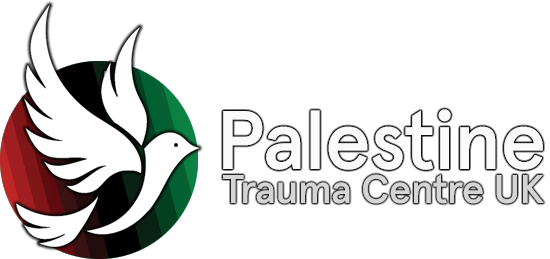Notes from the PTC(UK) meeting with colleagues in Gaza 20th July 2024
In spite of the horror, in spite of the hunger, activities by the PTC(UK) team continue. Here are some of the latest pictures:
Below are notes from our latest online meeting with colleagues in Gaza 20/7/2024
Meeting facilitated by David Harrold and Mohamed Altawil
Written by Gwyn Daniel
On this occasion there were at least eleven attendees from Gaza including several people who hadn’t been able to connect before and they provided harrowing testimony of their experiences after over nine months of genocidal onslaught and an intensification of bombardment over the past few weeks especially in the central area and in Gaza city. Several people said this was as bad as the early days of the war. Because of fears by those in the war zone of being targeted we will not use full names this time and the meeting was not recorded.
We began with Dr O who described how very bad the situation was with constant bombardment, lack of food and water; he highlighted in particular the fear of disease spreading due to the insanitary conditions people were forced to live in. He mentioned the risk of cholera and polio. Mohamed Altawil added that the Israelis had taken the risk sufficiently seriously to vaccinate their own soldiers against polio. The risk of disease as well as bombardment makes people fearful of moving around although they are compelled to in order to search for food and to find mobile phone reception.
Dr S described the suffering he experiences trying to do his work at the hospital. Getting there is incredibly difficult, dangerous and exhausting because the roads are rubble strewn and often blocked by collapsed buildings. “To make bread, we burn doors and furniture from our destroyed homes. We burn our memories to make bread.” He spoke about how terrible he feels and issued the plea to the audience: “Do not forget our suffering.”
E and S who are both in Gaza city also spoke about the extreme difficulty of moving about. Not only is being outside at all perilous in the extreme but when they go to provide activities for children, they have to walk for three hours. The audience were in awe of the commitment and dedication that still impelled them to do this valuable work.
AA described having to go to hospital for treatment and how he continues to suffer from a bad back for which he has no adequate medication. He described not sleeping because of the constant fear of being targeted and added “We are not fine. We can’t help others because all of us suffer the same suffering.” Throughout the call, AA’s two daughters were playing in the background. He told us that at night they frequently wake up screaming.
H was calling from Al Mawasi camp – supposedly created as a safe zone but which has been under attack. It is her sixth displacement.
A is based in Gaza City. She described how it is cut off from the rest of the Gaza Strip. She continues providing activities for children, using whatever materials she can find. She said that the children were happy to be doing these activities but they were very disappointed that A could not provide the usual biscuits and juice. She commented that fear is everywhere.
E and S also commented on how difficult it had been for the team to be in touch with each other and how distressing that had been. They said that this made the present meeting especially important
J said his feelings were similar to the others – the same intense suffering. He has been displaced six times and injured twice in bombing. The first time was in his parents’ house, which was not strongly built, and the second time was in an UNRWA school. He was injured in his shoulder and many were killed.
He said there had been three bombardments during the course of our zoom call. AK who was on the call last time but not present today was causing some concern. His uncle had been killed and the others do not know how he is.
J commented on how it is impossible to plan anything; nobody knows what will happen next. There is the fear of a ground invasion of the middle areas (including Nuseirat and Deir al Balah)
N who is in Turkey spoke of her continuing fear and anxiety for loved ones in Gaza and said how hard it is to be in exile.
M spoke of how this is not like any war you can imagine in your life. “We can’t describe it – it leaves us speechless. There is no food, no water, no medicine. It has changed us. We will be different compared to before.” She said that her aunt’s house had been destroyed with one hundred people killed and many buried under the rubble. In Nuseirat the mosque has just been destroyed. People have to walk everywhere because there is no transport (no fuel etc). Many roads are impassable because of the rubble so people have to take huge detours. When asked about mobile phones everyone talked of having to go outside to get a signal, e.g. going to the beach. They said how dangerous this is because of the risk of bombardment. There are no high places where you can get a signal because they have all been destroyed. The Israelis do not want people to watch them.
Responses from those in the UK included assurances that we would always be there for them and do whatever we can to protest this genocide, that we would make sure their accounts were heard by others and how full of admiration and awe we are for what they manage to achieve in supporting children.


